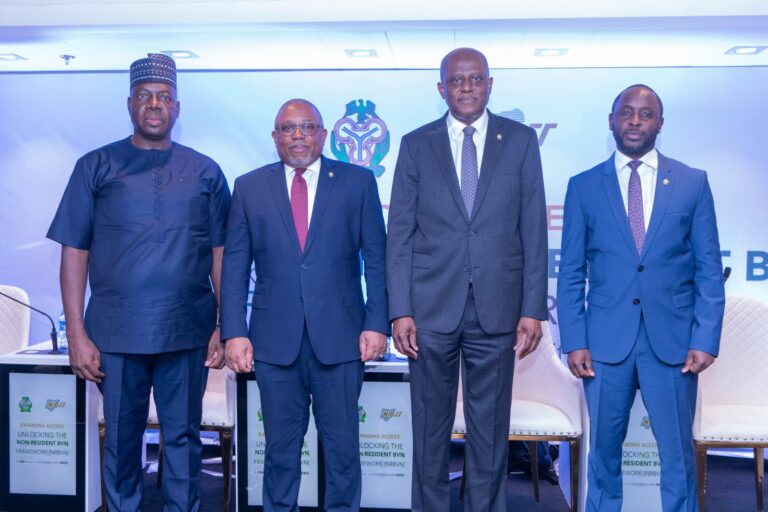The Nigerian naira continued its upward trend on Wednesday at the official foreign exchange (FX) market, following the Central Bank of Nigeria’s (CBN) recent introduction of the Non-Resident Diaspora Bank Verification Number (NRBVN).
According to data released by the CBN, the naira appreciated by ₦3.33 against the dollar, settling at ₦1,596.70 at the close of trading. This marks a 0.2% improvement compared to Tuesday’s rate of ₦1,600.03 at the Nigerian Foreign Exchange Market (NFEM).
However, the story was different in the informal FX market—commonly called the black market—where the naira dipped slightly by ₦2, trading at ₦1,627 to the dollar, compared to ₦1,625 the day before.
The launch of the NRBVN on Tuesday was a joint effort between the CBN and the Nigeria Inter-Bank Settlement System (NIBSS). The initiative aims to enhance financial inclusion for Nigerians living abroad, strengthen their ties to the domestic banking system, and increase the flow of foreign currency into the country.
CBN Governor Olayemi Cardoso reaffirmed the bank’s commitment to attracting up to $1 billion monthly in diaspora remittances. He also emphasized the importance of compliance with the Foreign Exchange (FX) Code and regulatory standards to ensure confidence and consistency in the market.
According to Ayokunle Olubunmi, head of financial institution ratings at Agusto & Co., the NRBVN is intended not just to raise foreign currency deposits, but also to enable Nigerians abroad to operate multi-currency accounts with Nigerian banks. While he acknowledged that the immediate impact on FX inflows may be modest, he noted that the programme could help banks grow their client base and boost income from cross-border transactions.
Ayodele Akinwunmi, a senior relationship manager at FSDH Merchant Bank, added that diaspora remittances are a critical component of Nigeria’s FX inflow. He believes the NRBVN will contribute meaningfully to maintaining the naira’s value, especially given the increasing number of Nigerians who have relocated overseas in recent years.
Echoing similar sentiments, Tilewa Adebajo, CEO of CFG Advisory, described the programme as a positive step toward greater diaspora engagement in Nigeria’s financial system. He highlighted that Nigerians abroad are projected to send between $25 billion and $30 billion annually, making them a key source of foreign exchange revenue.
The naira has shown signs of stability since the implementation of the Electronic Foreign Exchange Matching System (EFEMS) on December 2, 2024. In the first eight trading days of May 2025, the naira gained ₦2.15, moving from ₦1,602.18 to ₦1,600.03, reflecting a slight 0.13% appreciation at the NFEM.
In the parallel market, the naira has fluctuated within a narrow band, trading between ₦1,600 and ₦1,625 to the dollar, signaling a period of relative consistency.

